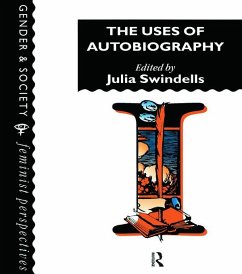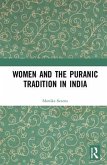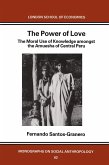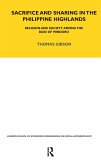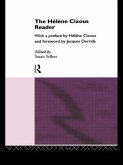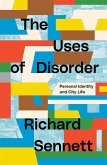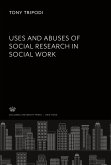Cambridge. Julia Swindells Homerton College (ed.)
The Uses of Autobiography
Herausgeber: Julia Swindells Homerton College, Cambridge
Cambridge. Julia Swindells Homerton College (ed.)
The Uses of Autobiography
Herausgeber: Julia Swindells Homerton College, Cambridge
- Gebundenes Buch
- Merkliste
- Auf die Merkliste
- Bewerten Bewerten
- Teilen
- Produkt teilen
- Produkterinnerung
- Produkterinnerung
First Published in 1995. Routledge is an imprint of Taylor & Francis, an informa company.
Andere Kunden interessierten sich auch für
![Women and the Puranic Tradition in India Women and the Puranic Tradition in India]() Monika SaxenaWomen and the Puranic Tradition in India197,99 €
Monika SaxenaWomen and the Puranic Tradition in India197,99 €![The Genius of the Jewish Joke The Genius of the Jewish Joke]() Arthur Asa BergerThe Genius of the Jewish Joke198,99 €
Arthur Asa BergerThe Genius of the Jewish Joke198,99 €![The Power of Love The Power of Love]() Fernando Santos-GraneroThe Power of Love154,99 €
Fernando Santos-GraneroThe Power of Love154,99 €![Sacrifice and Sharing in the Philippine Highlands Sacrifice and Sharing in the Philippine Highlands]() Thomas P GibsonSacrifice and Sharing in the Philippine Highlands198,99 €
Thomas P GibsonSacrifice and Sharing in the Philippine Highlands198,99 €![The Hélène Cixous Reader The Hélène Cixous Reader]() Susan Sellers (ed.)The Hélène Cixous Reader197,99 €
Susan Sellers (ed.)The Hélène Cixous Reader197,99 €![The Uses of Disorder The Uses of Disorder]() Richard SennettThe Uses of Disorder18,99 €
Richard SennettThe Uses of Disorder18,99 €![Uses & Abuses of Social Research in Social Work Uses & Abuses of Social Research in Social Work]() Tony TripodiUses & Abuses of Social Research in Social Work61,00 €
Tony TripodiUses & Abuses of Social Research in Social Work61,00 €-
-
-
First Published in 1995. Routledge is an imprint of Taylor & Francis, an informa company.
Hinweis: Dieser Artikel kann nur an eine deutsche Lieferadresse ausgeliefert werden.
Hinweis: Dieser Artikel kann nur an eine deutsche Lieferadresse ausgeliefert werden.
Produktdetails
- Produktdetails
- Verlag: Taylor & Francis
- Seitenzahl: 227
- Erscheinungstermin: 27. November 1995
- Englisch
- Abmessung: 235mm x 157mm x 19mm
- Gewicht: 557g
- ISBN-13: 9780748403653
- ISBN-10: 0748403655
- Artikelnr.: 21881601
- Herstellerkennzeichnung
- Libri GmbH
- Europaallee 1
- 36244 Bad Hersfeld
- gpsr@libri.de
- Verlag: Taylor & Francis
- Seitenzahl: 227
- Erscheinungstermin: 27. November 1995
- Englisch
- Abmessung: 235mm x 157mm x 19mm
- Gewicht: 557g
- ISBN-13: 9780748403653
- ISBN-10: 0748403655
- Artikelnr.: 21881601
- Herstellerkennzeichnung
- Libri GmbH
- Europaallee 1
- 36244 Bad Hersfeld
- gpsr@libri.de
Julia Swindells works in the English Department of Homerton College, Cambridge. Her publications include Victorian Writing and Working Women, The Other Side of Silence, 1985, and What's Left? Women in Culture and the Labour Movement, with Lisa Jardine, 1990.
Chapter 1 Introduction
Julia Swindells; Chapter 2 Theories of Autobiography; Part 1 The face of autobiography
Laura Marcus; Part 2 Why does an author who apparently draws so much on autobiography seem committed to 'alienating' the reader?
Jane Unsworth; Chapter 3 Gender
Militancy and Wartime; Part 3 'She who would be politically free herself must strike the blow': Suffragette autobiography and suffragette militancy
Maroula Joannou; Part 4 'Dear Laughing Motorbyke': Gender and genre in women's letters from the Second World War
Margaretta Jolly; Chapter 4 Making Sense of the Self: Cultural Identities Under Pressure; Part 5 A strategy for survival
Clare Blake; Part 6 Cultural identities under pressure
David Whitley; Chapter 5 Constructing the Self
Inventing Africa; Part 7 Gender and iconography in autobiographies of Nelson and Winnie Mandela
Cheryl-Ann Michael; Part 8 Memory
history and 'faction' in Wole Soyinka's Aké and Zsara
Ato Quaysorz; Chapter 6 Autobiography
Authenticity and Nineteenth-century Ideas of Race; Part 9 Sentimentality and the slave narrative: Frederick Douglass' My Bondage and My Freedom
Sarah Meer; Part 10 Speculating upon human feeling: evangelical writing and Anglo-Jewish women's autobiography
Nadia Valman; Chapter 7 Sisterhood and Self-censorship in the Nineteenth Century; Part 11 Writing herself: The diary of Alice James
Janet Bottoms; Part 12 Gender negotiations in nineteenth-century women's autobiographical writing
Pam Hirsch; Chapter 8 The Educative 'I' in Nineteenth-century Women's Autobiographies; Part 13 Catharine Cappe of York (1822)
Ruth A. Symes; Part 14 'What I earnestly longed for...': Elizabeth Missing Sewell
writing
autobiography and Victorian womanhood
Brian Ridgers; Chapter 9 Autobiography and Educational Change
Bobbie Wells
Peter Cunningham; Chapter 10 Life Histories
Adult Learning and Identity; Part 15 Writing about learning: Using Mass-Observation educational life-histories to explore learning through life
Alistair Thomson; Part 16 Motives
mature students
the self and narrative
Mary Lea
Linden West; Chapter 11 Assumed Identities: Feminism
Autobiography and Performance Art
Claire MacDonald; Chapter 12 There are stories and Stories: An Autobiography Workshop
Gillie Bolton
Morag Styles; Chapter 13 Conclusion: Autobiography and the Politics of 'The Personal'
Julia Swindells;
Julia Swindells; Chapter 2 Theories of Autobiography; Part 1 The face of autobiography
Laura Marcus; Part 2 Why does an author who apparently draws so much on autobiography seem committed to 'alienating' the reader?
Jane Unsworth; Chapter 3 Gender
Militancy and Wartime; Part 3 'She who would be politically free herself must strike the blow': Suffragette autobiography and suffragette militancy
Maroula Joannou; Part 4 'Dear Laughing Motorbyke': Gender and genre in women's letters from the Second World War
Margaretta Jolly; Chapter 4 Making Sense of the Self: Cultural Identities Under Pressure; Part 5 A strategy for survival
Clare Blake; Part 6 Cultural identities under pressure
David Whitley; Chapter 5 Constructing the Self
Inventing Africa; Part 7 Gender and iconography in autobiographies of Nelson and Winnie Mandela
Cheryl-Ann Michael; Part 8 Memory
history and 'faction' in Wole Soyinka's Aké and Zsara
Ato Quaysorz; Chapter 6 Autobiography
Authenticity and Nineteenth-century Ideas of Race; Part 9 Sentimentality and the slave narrative: Frederick Douglass' My Bondage and My Freedom
Sarah Meer; Part 10 Speculating upon human feeling: evangelical writing and Anglo-Jewish women's autobiography
Nadia Valman; Chapter 7 Sisterhood and Self-censorship in the Nineteenth Century; Part 11 Writing herself: The diary of Alice James
Janet Bottoms; Part 12 Gender negotiations in nineteenth-century women's autobiographical writing
Pam Hirsch; Chapter 8 The Educative 'I' in Nineteenth-century Women's Autobiographies; Part 13 Catharine Cappe of York (1822)
Ruth A. Symes; Part 14 'What I earnestly longed for...': Elizabeth Missing Sewell
writing
autobiography and Victorian womanhood
Brian Ridgers; Chapter 9 Autobiography and Educational Change
Bobbie Wells
Peter Cunningham; Chapter 10 Life Histories
Adult Learning and Identity; Part 15 Writing about learning: Using Mass-Observation educational life-histories to explore learning through life
Alistair Thomson; Part 16 Motives
mature students
the self and narrative
Mary Lea
Linden West; Chapter 11 Assumed Identities: Feminism
Autobiography and Performance Art
Claire MacDonald; Chapter 12 There are stories and Stories: An Autobiography Workshop
Gillie Bolton
Morag Styles; Chapter 13 Conclusion: Autobiography and the Politics of 'The Personal'
Julia Swindells;
Chapter 1 Introduction
Julia Swindells; Chapter 2 Theories of Autobiography; Part 1 The face of autobiography
Laura Marcus; Part 2 Why does an author who apparently draws so much on autobiography seem committed to 'alienating' the reader?
Jane Unsworth; Chapter 3 Gender
Militancy and Wartime; Part 3 'She who would be politically free herself must strike the blow': Suffragette autobiography and suffragette militancy
Maroula Joannou; Part 4 'Dear Laughing Motorbyke': Gender and genre in women's letters from the Second World War
Margaretta Jolly; Chapter 4 Making Sense of the Self: Cultural Identities Under Pressure; Part 5 A strategy for survival
Clare Blake; Part 6 Cultural identities under pressure
David Whitley; Chapter 5 Constructing the Self
Inventing Africa; Part 7 Gender and iconography in autobiographies of Nelson and Winnie Mandela
Cheryl-Ann Michael; Part 8 Memory
history and 'faction' in Wole Soyinka's Aké and Zsara
Ato Quaysorz; Chapter 6 Autobiography
Authenticity and Nineteenth-century Ideas of Race; Part 9 Sentimentality and the slave narrative: Frederick Douglass' My Bondage and My Freedom
Sarah Meer; Part 10 Speculating upon human feeling: evangelical writing and Anglo-Jewish women's autobiography
Nadia Valman; Chapter 7 Sisterhood and Self-censorship in the Nineteenth Century; Part 11 Writing herself: The diary of Alice James
Janet Bottoms; Part 12 Gender negotiations in nineteenth-century women's autobiographical writing
Pam Hirsch; Chapter 8 The Educative 'I' in Nineteenth-century Women's Autobiographies; Part 13 Catharine Cappe of York (1822)
Ruth A. Symes; Part 14 'What I earnestly longed for...': Elizabeth Missing Sewell
writing
autobiography and Victorian womanhood
Brian Ridgers; Chapter 9 Autobiography and Educational Change
Bobbie Wells
Peter Cunningham; Chapter 10 Life Histories
Adult Learning and Identity; Part 15 Writing about learning: Using Mass-Observation educational life-histories to explore learning through life
Alistair Thomson; Part 16 Motives
mature students
the self and narrative
Mary Lea
Linden West; Chapter 11 Assumed Identities: Feminism
Autobiography and Performance Art
Claire MacDonald; Chapter 12 There are stories and Stories: An Autobiography Workshop
Gillie Bolton
Morag Styles; Chapter 13 Conclusion: Autobiography and the Politics of 'The Personal'
Julia Swindells;
Julia Swindells; Chapter 2 Theories of Autobiography; Part 1 The face of autobiography
Laura Marcus; Part 2 Why does an author who apparently draws so much on autobiography seem committed to 'alienating' the reader?
Jane Unsworth; Chapter 3 Gender
Militancy and Wartime; Part 3 'She who would be politically free herself must strike the blow': Suffragette autobiography and suffragette militancy
Maroula Joannou; Part 4 'Dear Laughing Motorbyke': Gender and genre in women's letters from the Second World War
Margaretta Jolly; Chapter 4 Making Sense of the Self: Cultural Identities Under Pressure; Part 5 A strategy for survival
Clare Blake; Part 6 Cultural identities under pressure
David Whitley; Chapter 5 Constructing the Self
Inventing Africa; Part 7 Gender and iconography in autobiographies of Nelson and Winnie Mandela
Cheryl-Ann Michael; Part 8 Memory
history and 'faction' in Wole Soyinka's Aké and Zsara
Ato Quaysorz; Chapter 6 Autobiography
Authenticity and Nineteenth-century Ideas of Race; Part 9 Sentimentality and the slave narrative: Frederick Douglass' My Bondage and My Freedom
Sarah Meer; Part 10 Speculating upon human feeling: evangelical writing and Anglo-Jewish women's autobiography
Nadia Valman; Chapter 7 Sisterhood and Self-censorship in the Nineteenth Century; Part 11 Writing herself: The diary of Alice James
Janet Bottoms; Part 12 Gender negotiations in nineteenth-century women's autobiographical writing
Pam Hirsch; Chapter 8 The Educative 'I' in Nineteenth-century Women's Autobiographies; Part 13 Catharine Cappe of York (1822)
Ruth A. Symes; Part 14 'What I earnestly longed for...': Elizabeth Missing Sewell
writing
autobiography and Victorian womanhood
Brian Ridgers; Chapter 9 Autobiography and Educational Change
Bobbie Wells
Peter Cunningham; Chapter 10 Life Histories
Adult Learning and Identity; Part 15 Writing about learning: Using Mass-Observation educational life-histories to explore learning through life
Alistair Thomson; Part 16 Motives
mature students
the self and narrative
Mary Lea
Linden West; Chapter 11 Assumed Identities: Feminism
Autobiography and Performance Art
Claire MacDonald; Chapter 12 There are stories and Stories: An Autobiography Workshop
Gillie Bolton
Morag Styles; Chapter 13 Conclusion: Autobiography and the Politics of 'The Personal'
Julia Swindells;

